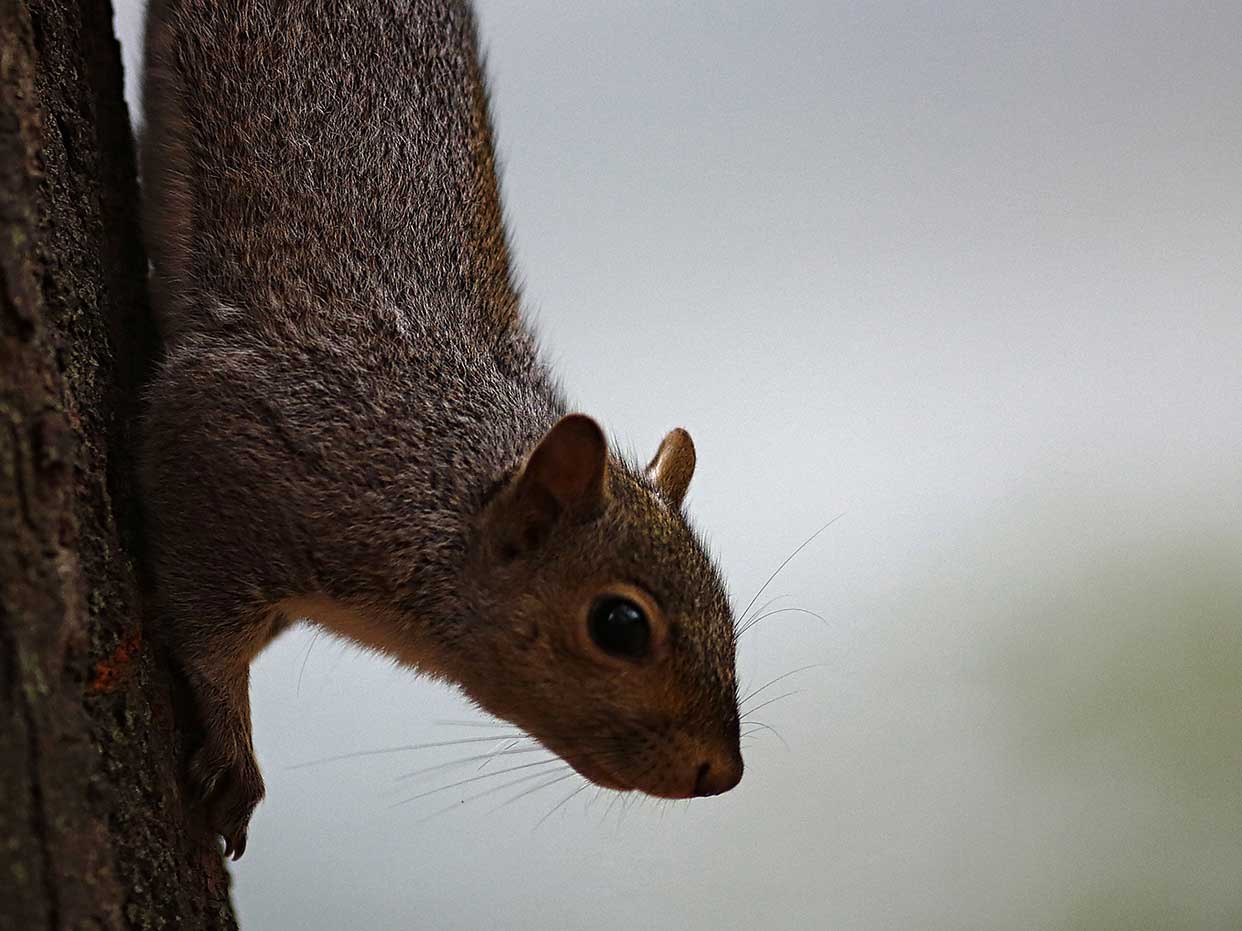Grey squirrels could run up £37m tree bill
And other stories from the stranger side of life

A free daily email with the biggest news stories of the day – and the best features from TheWeek.com
You are now subscribed
Your newsletter sign-up was successful
Grey squirrels are expected to ruin government plans to plant 1.5 billion trees by 2050, The Times reported. Vanessa Fawcett, campaign director of the Red Squirrel Survival Trust, said the bill for lost timber and replacing dead or damaged trees could reach as high as £37m. “If grey squirrel numbers continue unchecked, it is likely that the tree landscape of the UK will be fundamentally changed for future generations,” she said.
Man vanishes after being paid 300 times his salary
A man in Chile submitted his resignation and disappeared after his workplace accidentally paid him about 330 times his salary, Fox News reported. The worker, a dispatch assistant at a cold meats manufacturer, initially alerted his manager of the huge overpayment and was asked to return the extra money. He agreed but then resigned and vanished. Company bosses have filed a complaint against the worker, accusing him of misappropriating funds, but no arrests have been made so far.
Bid to preserve noughts and crosses in Spanish city
A historical association in Santiago de Compostela is calling for the protection of almost 200 games of noughts and crosses carved centuries ago into some of its city’s buildings and spaces. Colectivo A Rula began logging the games in 2015 after they were posted on social media. Some of the games are believed to date back to the late 16th century, The Guardian reported. “They’re hidden in plain sight,” said spokesman Luis Leclere.
The Week
Escape your echo chamber. Get the facts behind the news, plus analysis from multiple perspectives.

Sign up for The Week's Free Newsletters
From our morning news briefing to a weekly Good News Newsletter, get the best of The Week delivered directly to your inbox.
From our morning news briefing to a weekly Good News Newsletter, get the best of The Week delivered directly to your inbox.
A free daily email with the biggest news stories of the day – and the best features from TheWeek.com
-
 How the FCC’s ‘equal time’ rule works
How the FCC’s ‘equal time’ rule worksIn the Spotlight The law is at the heart of the Colbert-CBS conflict
-
 What is the endgame in the DHS shutdown?
What is the endgame in the DHS shutdown?Today’s Big Question Democrats want to rein in ICE’s immigration crackdown
-
 ‘Poor time management isn’t just an inconvenience’
‘Poor time management isn’t just an inconvenience’Instant Opinion Opinion, comment and editorials of the day
-
 Epstein files topple law CEO, roil UK government
Epstein files topple law CEO, roil UK governmentSpeed Read Peter Mandelson, Britain’s former ambassador to the US, is caught up in the scandal
-
 Iran and US prepare to meet after skirmishes
Iran and US prepare to meet after skirmishesSpeed Read The incident comes amid heightened tensions in the Middle East
-
 Israel retrieves final hostage’s body from Gaza
Israel retrieves final hostage’s body from GazaSpeed Read The 24-year-old police officer was killed during the initial Hamas attack
-
 China’s Xi targets top general in growing purge
China’s Xi targets top general in growing purgeSpeed Read Zhang Youxia is being investigated over ‘grave violations’ of the law
-
 Panama and Canada are negotiating over a crucial copper mine
Panama and Canada are negotiating over a crucial copper mineIn the Spotlight Panama is set to make a final decision on the mine this summer
-
 Why Greenland’s natural resources are nearly impossible to mine
Why Greenland’s natural resources are nearly impossible to mineThe Explainer The country’s natural landscape makes the task extremely difficult
-
 Iran cuts internet as protests escalate
Iran cuts internet as protests escalateSpeed Reada Government buildings across the country have been set on fire
-
 US nabs ‘shadow’ tanker claimed by Russia
US nabs ‘shadow’ tanker claimed by RussiaSpeed Read The ship was one of two vessels seized by the US military